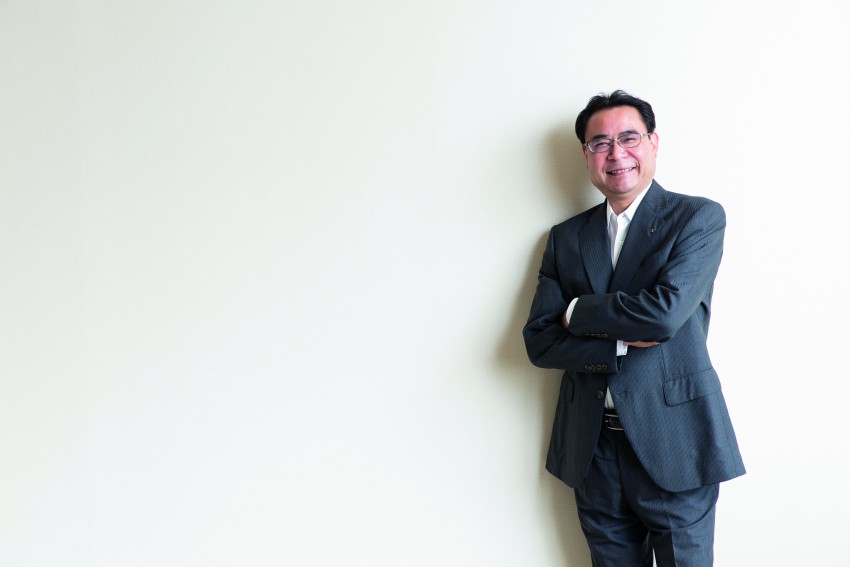Over its 200-year-history, Ishizuka Glass has naturally had to adapt to a changing market, moving from glass bottles and wares, to plastic and paper packaging and the development of advanced glass-based materials such as IONPURE.

Glass manufacturing is an industry that dates backs millennia. And as human technology has progressed, glass has always had its place, from its use in ancient weapons, to solar panels and the touch screens that surround us today.
With material scientists finding increasingly new and innovative uses for glass, it is considered by many to be the defining material of our time, while U.S. firm Corning Inc. has hailed the era in which we are now living as ‘The Glass Age’.
For two centuries, Japanese company Ishizuka Glass has been at the heart of the glass industry. And as the company marks its 200th anniversary in 2019, it will continue to explore and investigate the properties and secrets of glass to advance into innovative new fields.
Established as a manufacturer of glass products in Japan’s Gifu prefecture in 1819, today Ishizuka is made up of a group of business units and subsidiaries working together to fully share their knowhow on the development of glass products and materials.
Over its 200-year-history, the company has naturally had to adapt to a changing market, moving from glass bottles and wares (which it continues to make today), to plastic and paper packaging and the development of advanced glass-based materials such as IONPURE – a groundbreaking anti-microbial glass compound with uses in the automobile, electronics, medical, food and household industries, to name a few.
“As you can imagine, the market and the technologies have changed significantly during these 200 years, therefore it has been a constant challenge to adapt. We are glass experts and we will keep looking for opportunities in the industry to make the maximum use of this know-how,” says president, Hisatsugu Ishizuka.
“Our main objective is to increase our operating profits from 3.4 to 5 percent annually. To reach this objective, we need to diversify our activity. The packaging market is becoming highly competitive and consequently, the sales and margins tend to decrease. As a consequence, we want to shift our activity to new and more specialized products that will be able to deliver better profitability.”
Tableware is one segment in which Mr. Ishizuka sees ample room for growth. In the 1960s, his company started producing highquality glass tableware under the brand ‘ADERIA’, and today produces “long-life-design products”, guided by the belief that honest and timeless design should never be discarded and last forever.
To maintain the Japanese-trademarked high-quality of its products as it looks to strengthen its presence in overseas markets, Ishizuka has decided to keep all manufacturing in Japan, but forms solid partnerships to support its international expansion – such as that with ceramics maker Narumi Corporation, which it acquired in 2015 to diversify its product line and grow international sales.
“We have decided to focus on the ‘Made in Japan’ principle and concentrate our production exclusively in this country. What makes the Japanese quality high is the matrix of national character, the spirit of devotion, diligence and precision,” explains Mr. Ishizuka.
“We are not trying to reach good quality. We want to go beyond that because there will surely be a customer considering that the quality could be better. We always have to exceed expectations.”
Beyond glass packaging, wares and advanced glass materials, Ishizuka makes plasticbased products that comply with the strictest environmental and recycling regulations. As a manufacturer of PET preforms and plastic containers, Mr. Ishizuka is acutely aware of the environmental concerns surrounding these products and
has taken steps accordingly.
“We are indeed very concerned about this issue and try to be as ecofriendly as possible. For example, we make use of discarded PET bottles to manufacture recycled material, so that we avoid the use of virgin materials,” he explains. “On the global scale, a new directive has been released to have all food and beverage companies use non-fossil based materials or recycled plastics for packaging by 2030.”
If and when plastics such as PET are phased out, Ishizuka will look to drive the development of new packaging materials alongside its efforts to pursue advanced glass technologies – adapting to the ever-changing market as it has done so throughout its 200-year-old history.
0 COMMENTS